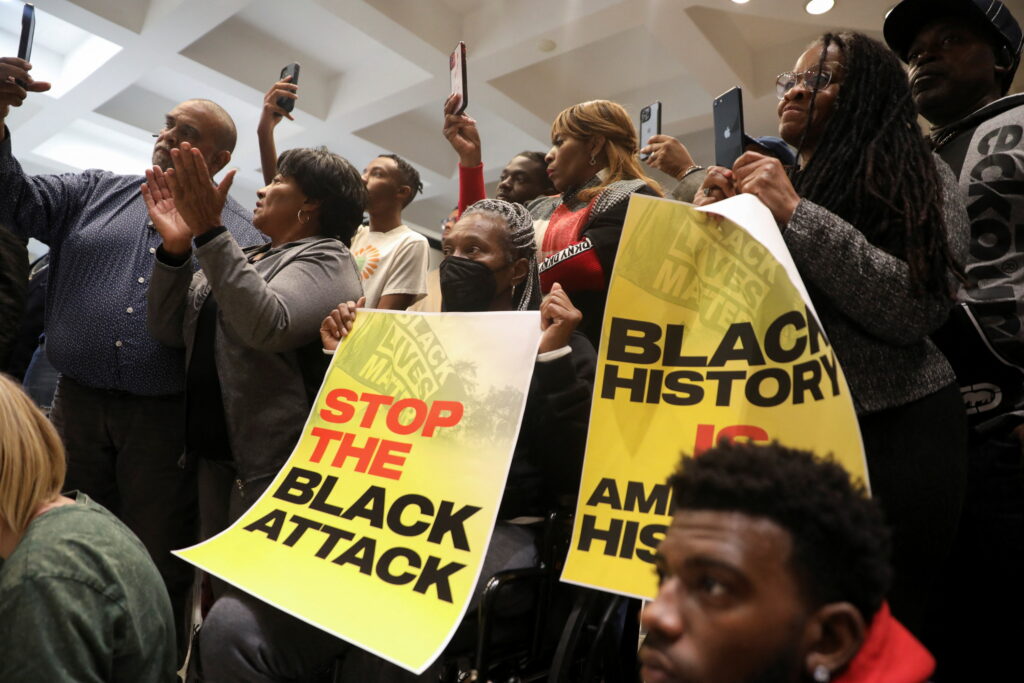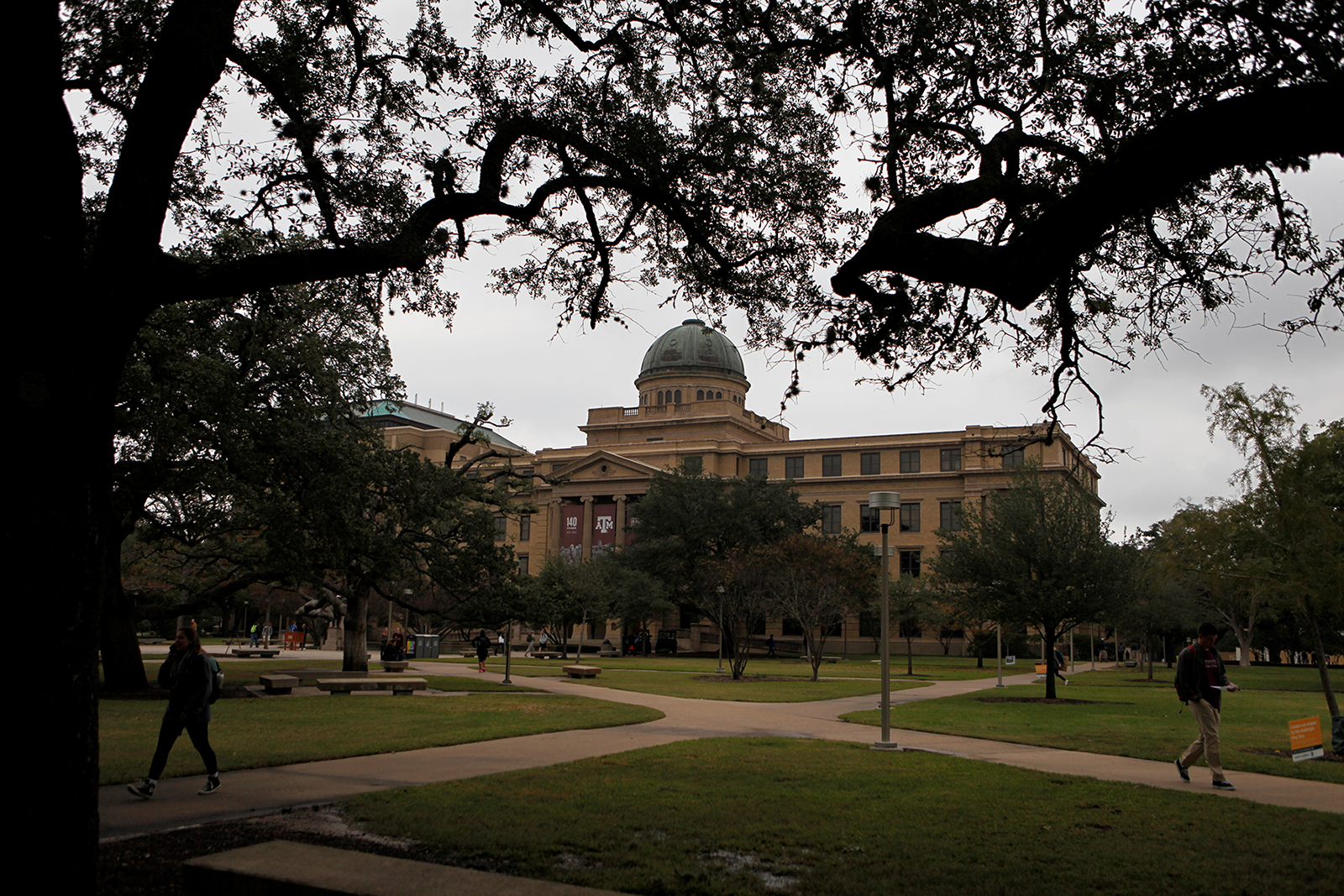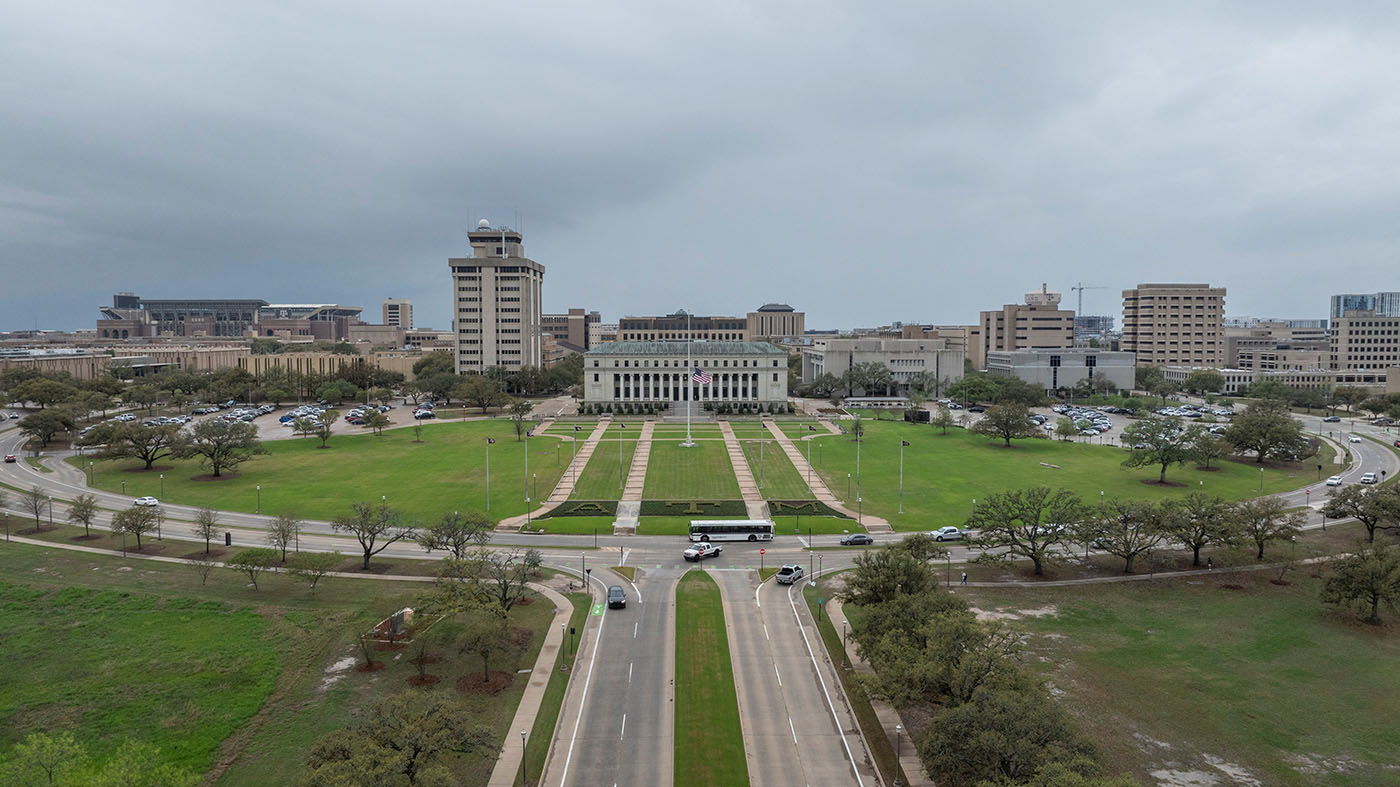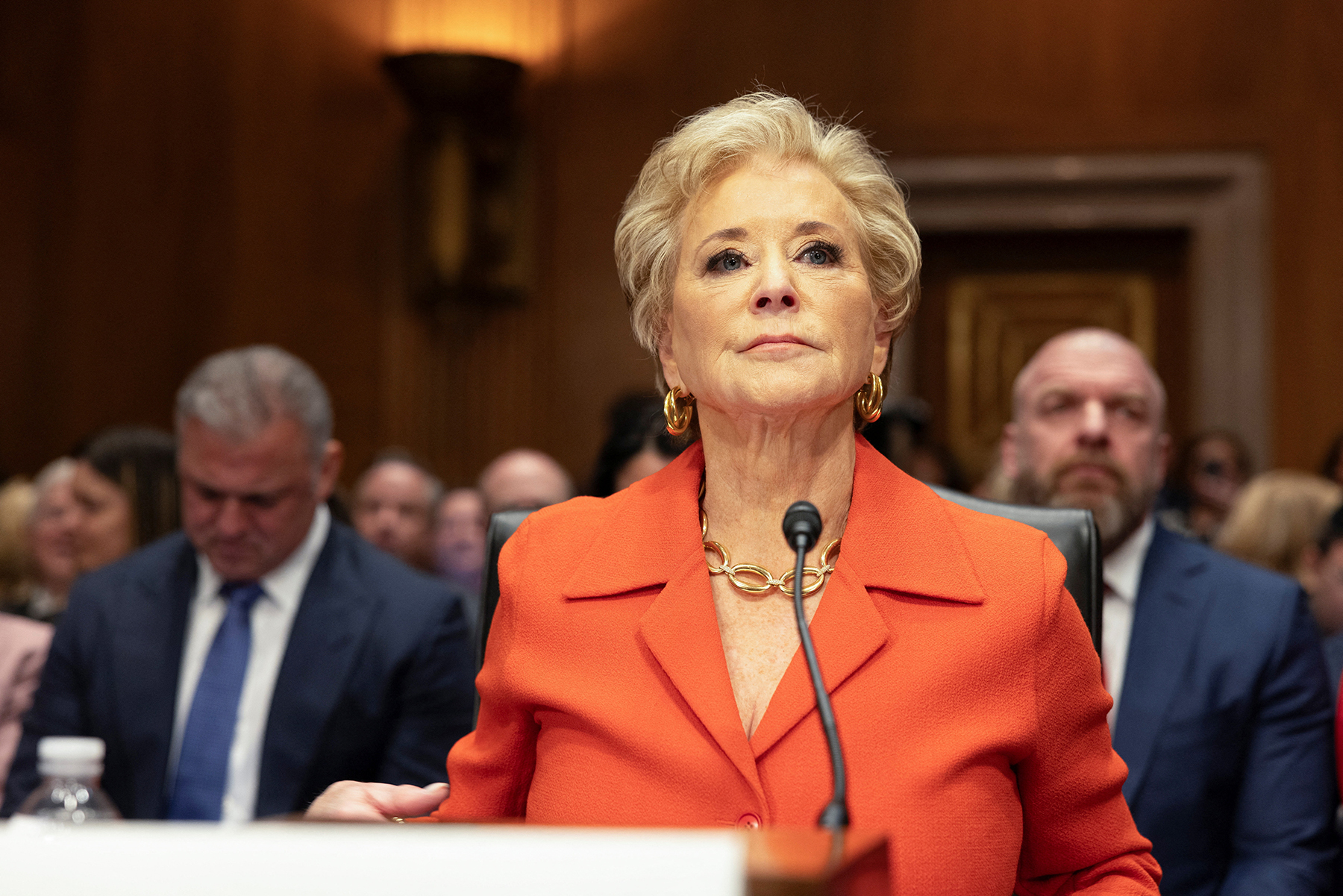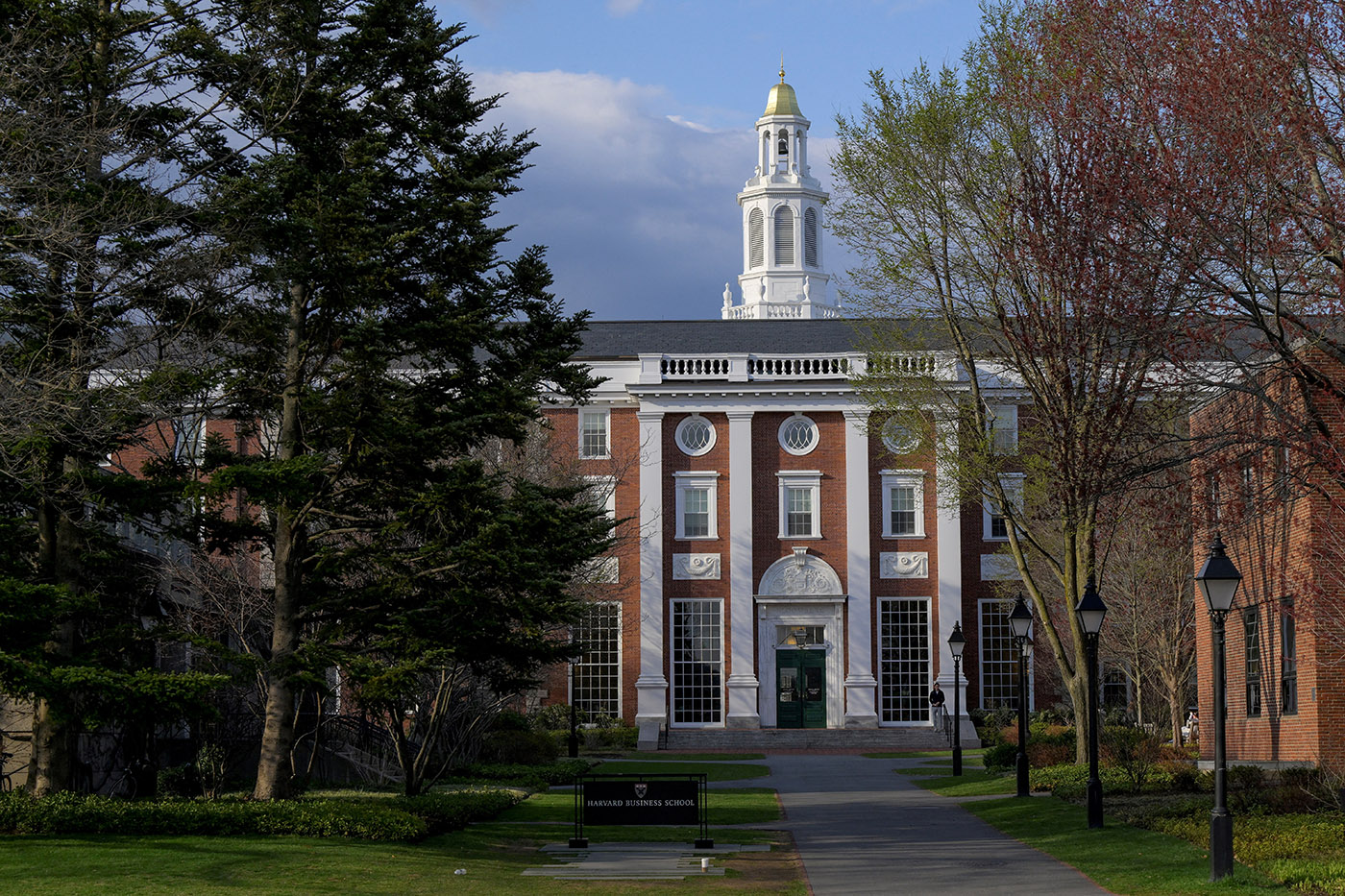Two Florida bills filed by State Rep. Alex Andrade, a Gov. Ron DeSantis ally, on the same day in late February represent “a full-fledged assault on the First Amendment,” says Bobby Block, executive director of the First Amendment Foundation.
One, House Bill 999, notably proposes the removal of degrees focused on gender, race, or other “belief systems” from public, higher education institutions. The bill has sparked protests by students across the state in a “Stand for Freedom” initiative. The other, House Bill 991, proposes adjustments to the state’s defamation laws, ultimately making it easier for those allegedly defamed to prevail in a lawsuit.
House Bill 991 “threatens one of the bedrock principles of free speech in America, which is the right to criticize government officials and other powerful figures without fear of financial or other types of retribution,” said Katie Fallow, senior counsel at the Knight First Amendment Institute at Columbia University, in a statement. “It would be a complete sea change in how both journalists and ordinary citizens are able to talk about powerful figures.”
Two additional measures in late February have raised First Amendment concerns: a change in policy requiring that events held at the state Capitol “align” with the state’s mission; and Senate Bill 1316, which requires bloggers to register with the state if they write about elected officials or face fines of up to $2,500. According to the Orlando Sentinel, DeSantis said during a March 7 press conference that he does not support Senate Bill 1316.
All of these measures from the legislature and the governor’s office, Block says, are “un-American … This state of Florida right now is looking to undo effectively what the Founding Fathers desired. I don’t know what you describe it other than un-American.”
House Bill 999: Public Postsecondary Educational Institutions
House Bill 999, if passed, will go into effect July 1. The bill was filed less than a month after Gov. DeSantis announced his proposed reforms to higher education in Florida.
DeSantis’ higher education reform — “Education Not Indoctrination” — proposes changes to the required core curriculum in public colleges and universities, the removal of “degrees designed to further a political agenda,” prohibits the use of Diversity, Equity and Inclusion, (DEI), statements in the hiring process of faculty and professors, and prohibits state institutions from funding activities on campus “that promote divisive concepts like DEI and CRT [Critical Race Theory].”
HB 999 mirrors the governor’s proposals.
Andrew Gothard, president of the United Faculty of Florida, (UFF), a union of more than 25,000 faculty members from primary, secondary and higher education levels across the state, says “You can move systemically through this bill and look at the way that it is prioritizing viewpoint discrimination in an even more extreme fashion than the Stop WOKE Act.” Viewpoint discrimination represents a fundamental violation of First Amendment rights because the government is not permitted to favor or disfavor viewpoints expressed in the marketplace of ideas.
“There is nothing in that bill that will help the higher education system and in fact, if it is passed, it will destroy higher education in Florida, and that is not hyperbole,” he said.
HB 999’s proposed changes to higher education include the discontinuation of certain degree programs from public institutions, adjusting tenure review policy and limiting funding to student activities that may welcome discussion of CRT, DEI or other similar concepts.
Classroom Discussions and Teaching:
From HB 999:
“The board [of governors] shall … provide direction to each constituent university on removing from its programs any major or minor in Critical Race Theory, Gender Studies, or Intersectionality, or any derivative major or minor of these belief systems, which is any major or minor that engenders beliefs in the concepts defined in [Section] 1000.05(4)(a).”
1000.05(4)(a) is a section of the amended Florida Education Equity Act, which is central to the academic provision of the Stop Wrongs Against Our Kids and Employees Act, coined the “Stop WOKE” Act by Gov. DeSantis. This provision was blocked by Chief U.S. District Judge Mark Walker in November, who described the law as “positively dystopian” and “antithetical to academic freedom.”
“Neither the State of Florida’s authority to regulate public school curriculum, nor its interest in preventing race or sex discrimination can support its weight,” Judge Walker wrote in the decision. “Nor does the First Amendment tolerate it.”
The concepts defined in the amended Florida Education Equity Act bar certain discussions and lessons that center around race, color, sex or national origin. The concepts include promoting that one race, color, sex or national origin is morally superior to another; and the idea that because someone is of a certain race, color, sex or national origin they are “inherently racist, sexist, or oppressive, whether consciously or unconsciously.”
Since a portion of the bill that the current legislation cites has been blocked by Judge Walker, how can it proceed?
Adam Steinbaugh, attorney at the Foundation for Individual Rights and Expression, says nothing can prevent the “legislature from passing an unconstitutional law, the question is whether or not the law can then be enforced.” But, he added, the injunction against the academic provision of the Stop WOKE Act is “nuanced.”
The injunction against the academic provision of the Stop WOKE Act barred the state’s public universities from taking steps to enforce Section 1000.05(4)(a), which prohibits faculty from suggesting that they agree with a series of prohibited concepts. HB 999 then specifies that certain majors or minors that “engender” these concepts are prohibited. Steinbaugh says this is “fairly ambiguous.”
“If any class tends to promote one of these concepts, does that mean that any class that is required for any major or minor has to specifically exclude any of these concepts? That starts looking like a pretty broad speech code equivalent to the Stop WOKE Act,” Steinbaugh said. “If this passed as written and the university system enforced it, I think that would raise serious questions about compliance with the injunction.”
Aside from the removal of certain majors and minors, HB 999 also looks to refine the lessons and discussions in core general education courses. Undergraduate students are required to take five general education courses, one in each of five core subject areas: communication, mathematics, social science, humanities and natural sciences.
From HB 999:
“General education core courses may not suppress or distort significant historical events or include a curriculum that teaches identity politics, such as Critical Race Theory, or defines American history as contrary to the creation of a new nation based on universal principles stated in the Declaration of Independence.”
Lyrissa Lidsky, First Amendment lawyer and professor at the University of Florida Levin College of Law, says that for a law to be constitutional, “it must give clear notice to those affected as to what conduct will lead to punishment,” and “it cannot be so vague that it allows for discriminatory enforcement, especially when there is a danger that the enforcement would be aimed at disfavored content.”
Lidsky questioned what “distort” actually means regarding lessons on “significant historical events.”
“There’s a danger that what constitutes ‘distortion’ is in the eye of the enforcer, which is exactly what the Constitution forbids,” she said.
United Faculty of Florida President Andrew Gothard says, students are “near unanimously frustrated.”
“Even the ones who maybe don’t agree with everything that’s taught in a gender studies class, or maybe feel like there are some spaces to question intersectionality, or students who want to think critically and make up their mind, also agree that the state should not be banning subject matter because it is inconvenient to Gov. DeSantis’ election platform,” he said. “That’s what we’re hearing across the board.”
While the state does maintain its ability to set curriculum standards, Lidsky says, “these standards could, in a higher ed context, interfere with academic freedom to the extent they might be read to require teaching history in a manner inconsistent with professional standards of accuracy; however, the First Amendment contours of academic freedom are not well-defined in Supreme Court case law, and the statute might be construed more narrowly.”
There’s also apparent viewpoint discrimination in the bill, Lidsky said, since it “attempts to dictate not just the general curriculum that must be taught, but also the specific viewpoint or lens through which it must be taught. Such viewpoint-based regulation of speech is typically subject to the most exacting constitutional scrutiny.”
A Change in Tenure and Faculty Hiring:
In April 2022, DeSantis signed a bill into law that established a five-year review cycle for all tenured faculty in the state university system. But HB 999 takes the tenure review process a step further, proposing that “Each constituent university may initiate a post-tenure review of a faculty member at any time with cause.”
HB 999 also states:
“A state university is prohibited from using diversity, equity, and inclusion statements, Critical Race Theory rhetoric, or other forms of political identity filters as part of the hiring process, including as part of applications for employment, promotion and tenure, conditions of employment, or reviewing qualifications for employment.”
The bill, however, doesn’t include a definition for “Critical Race Theory” or its “rhetoric.” This lack of definition of such a broad term may make it unconstitutionally vague.
Funding Limits to Campus Activities:
From HB 999:
“A Florida College System institution, state university, Florida College System institution direct-support organization, or state university direct-support organization may not, directly or through a contract, grant, or agreement that provides services, expend any funds, regardless of source, to:
1. Purchase membership in, or goods and services from, any organization that discriminates on the basis of race, national origin, gender, or religion.
2. Promote, support, or maintain any programs or campus activities that violate [Section] 1000.05(4)(a) or that espouse diversity, equity, and inclusion or Critical Race Theory rhetoric.”
Even if campus activities are funded by students, Steinbaugh says, the university can bar the activity or event regardless of the source of the funding.
If students collected a sum of money and the university was responsible for the account, for example, and the students requested a speaker to discuss Critical Race Theory, the university would not be able to enter into a contract with the speaker. “I think that would be very clearly unconstitutional,” Steinbaugh said.
Steinbaugh added that the Supreme Court “repeatedly held” that “the distribution of student fees must be viewpoint-neutral. HB999 is not. It would prohibit the use of student fee funding, as well as student access to other university resources, based on the viewpoint of the group, speaker, or activity.”
HB 999, Gothard says, is “what state-sponsored indoctrination looks like.”
“It is an attack on the fundamental freedom of not just academic freedom, but freedom of speech for students and faculty,” he said. “We will seek every opportunity we can to overturn or stop this law in whatever venue we have to pursue it.”
House Bill 991: Defamation, False Light, and Unauthorized Publication of Name or Likenesses
House Bill 991 focuses specifically on restructuring defamation law in the state. It proposes changes to public figure status, a shift in the standards for actual malice, attorney fees paid to successful plaintiffs, and that all anonymous records and sources are “presumptively false,” among other things.
According to a May 2022 report from the Orlando Sentinel, Stephanie Kopelousos, DeSantis’ legislative and intergovernment affairs director, drafted a bill that outlined proposed changes to defamation law similar to the language in HB 991.
The proposal included a section focused on the 1964 Supreme Court decision in New York Times Co. v. Sullivan, which established the actual malice standard. The court held that public officials and public figures can’t prevail in a defamation suit without proving that a statement was false and that, in addition, it was made “with knowledge that it was false or with reckless disregard of whether it was false or not.”
The drafted bill stated that “The federalization of defamation law, including the judicially created actual malice standard, bears no relation to the text, structure, or history of the First Amendment to the United States Constitution.”
The drafted bill, though, was never filed, the Orlando Sentinel reported. But on Feb. 20, Andrade filed House Bill 951, which only slightly adjusted the draft’s language. HB 951 was withdrawn a day later, and replaced with HB 991.
In an interview with First Amendment Watch, Andrade said that while he believes “the First Amendment should be protected, and that people’s ability to engage in the marketplace of ideas should be protected in the sacrosanct, I believe some of the exceptions that have grown out of New York Times v. Sullivan are improper. The pendulum has swung too far.”
HB 991 mirrors both the drafted bill and HB 951, but removes the section focused on Sullivan.
The precedent set in New York Times v. Sullivan “matters more than ever,” the Foundation for Individual Rights and Expression says.
Fallow of the Knight First Amendment Institute says that in Sullivan “and other cases, the Supreme Court held that protection for public discourse and speech critical of the government means that powerful figures who sue for defamation must meet a higher threshold of proof than under existing state defamation laws. This bill would roll back those crucial protections.”
The bill “creates a Wild West of litigation,” Block said.
He added that “we’re always reluctant to basically look at this as a bill that’s against the press because we see it as a bill that crushes free speech and freezes, not chills, freezes public discourse.”
Within HB 991, four of its sections — public figures, defamation standards, anonymous sources and false light — have been subjected to scrutiny and pushback from First Amendment lawyers, professors and advocates alike.
Public Figures:
From HB 991:
“A person may not be considered a public figure for purposes of establishing a defamation or privacy tort claim if his or her fame or notoriety arises solely from one or more of the following:
(1) Defending him or herself publicly against accusations.
(2) Granting an interview on a specific topic.
(3) Public employment other than elected office or appointment by an elected official.
(4) A video, image, or statement uploaded on the Internet that has reached a broad audience.”
Andrade noted that this bill “doesn’t just apply to media,” but “the standards that are placed in here apply to all publications regardless of whether or not they’re deemed the media.”
“This extends to social media users,” he added. “You can sue a private individual with 100 followers if they make a defamatory statement about you that causes you harm.”
Lidsky says the definition of a “public figure” as found in HB 991 “appears to conflict with the constitutional standard” set in the 1974 Supreme Court decision in Gertz v. Robert Welch, Inc. Although, she added, “one might argue it merely adds specificity to the factors in Gertz that determine public figure status.”
“Gertz stated that those who occupy prominent positions in society must prove a higher standard of fault in defamation cases because they have access to channels of communication that allow them to rebut defamatory falsehood; it also thought it fair to make them prove a higher standard of fault because they assume the risk of intensive coverage and criticism when they enter the public arena,” she said. “To the extent the definitions in the bill would contradict Gertz in a way that excludes from public figure status those Gertz would include, it is unconstitutional.”
Defamation Standards:
From HB 991:
“A fact finder shall infer actual malice for purposes of a defamation action when:
(a) The defamatory allegation is fabricated by the defendant, is a product of his or her imagination, or is based wholly on an unverified anonymous report;
(b) An allegation is so inherently implausible that only a reckless person would have put it into circulation; or
(c) There are obvious reasons to doubt the veracity of the defamatory allegation or the accuracy of an informant’s reports.”
The goal of HB 991, Andrade said, is to “make it simpler for many non-public figures to be able to pursue justice when they’ve been harmed.”
Anonymous Sources:
From HB 991:
“(1) A statement by an anonymous source is presumptively false for purposes of a defamation action.
(2) In a case where a defendant in a defamation action refuses to identify the source of a defamatory statement, the plaintiff need only prove that the defendant acted negligently in making the defamatory statement.”
Andrade says the bill wouldn’t “force” journalists to disclose anonymous sources, nor does he believe that journalists could be compelled to do so.
“It would put the onus on them to identify another method of avoiding liability if the statement that the anonymous source provided was in fact false and defamatory,” he said. “The parameters to avoid liability in that circumstance are still incredibly low, they’re below the minimum standards that most journalists are required to employ anyway. A journalist would just have to point to the documentary evidence, or another source, or another public record that they use to try and verify the information they got from that one anonymous source.”
Many news outlets “discourage” the use of anonymous sources, Block says. But if they are used, by the time readers see a report citing an anonymous source, the source would have already been vetted by the managing editor, executive editors, and in “very high impact stories, they would have to be cleared even higher up,” he said.
“Picking on anonymous sources… in my opinion, what it’s really aimed at is providing people in power, particularly politicians, with more cover to operate under darkness and behind closed doors without any concern that their dealings will be scrutinized by the public,” Block said.
False Light:
From HB 991:
“Any person who gives publicity to a matter concerning a natural person that places that person before the public in a false light is subject to liability if:
(a) The false light in which the person was placed would be highly offensive to a reasonable person; and
(b) The defendant had knowledge of or acted in reckless disregard as to the false implications of the publicized matter.”
The Supreme Court, Lidsky says, sets “the minimum protections for free speech that state defamation law must respect. States can choose to provide more free speech protection than the minimum set by the Court, but they can’t choose to provide less.”
The language in HB 991, she said, has been “carefully chosen to repeat some language from Supreme Court cases, but the overall effect may be to reduce protection for free speech below the bar set in those cases.”
Feb. 21, 2023 — House Bill 999
Feb. 21, 2023 — House Bill 991
Tags
